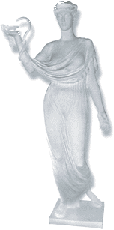

Ministry of Public Health and Social Development of RF
Russian Academy of Medical Sciences
Siberian Branch of Russian Academy of Medical Sciences
Siberian Branch of Russian Academy of Sciences
Medical Polar Fund “Science”
The Northern Forum



|
||

|
International Union for Circumpolar Health Ministry of Public Health and Social Development of RF Russian Academy of Medical Sciences Siberian Branch of Russian Academy of Medical Sciences Siberian Branch of Russian Academy of Sciences Medical Polar Fund “Science” The Northern Forum |
 
|
 |
Performance and Health in Cold Climate
There exist two main strategies of adaptation to cold. First one consists in metabolic compensation of heat loss. Second one suggests body temperature decrease, and increase of the threshold of cold shivering with the broadening in some limits of the comfort zone. Exposure of a subject to cold results in the normal physiological conditions in elaboration of a thermoregulatory trace. This trace is oriented to increase a subject surviving in the repeated cold. The principal interest in this aspect is to evaluate possible role of emotional stress mechanisms in elaboration of the adaptive thermoregulatory trace.
Cold tolerance in rats was estimated as a value of body temperature decrease after 45 min exposition of slightly restricted rats to moderate cold (+4 C). Several manipulations with the emotiogenic brain mechanisms were used including amygdalectomy, treatment with the benzodiazepine, alcohol or preexposure of immobilization stress. It was shown that animal resistance to cold stress increased significantly after the preexposure of contingent (i.e. cold) stressor. In contrast, preexposure of non-contingent stressor (i.e. immobilization) decreased animal tolerance to cold. Amygdalectomized animals, which were used as a conventional model of the emotional memory deficit, manifested respectively high resistance to cold during first chilling. Their capability to acquire adaptive thermoregulatory experience was absolutely inhibited. Chlordiazepoxide and ethyl alcohol applied as protectors against emotional stress lowered the temperature drop during the period of drug action (chlordiazepoxide - significantly, alcohol as a pronounced tendency). A repeated cold test in 48 hr. showed a lack of increase in cold resistance in animals trained under these substances.
Thus the excitation of emotional brain mechanisms leads to the increased heat loss. However, the clear adaptive thermoregulatory trace is elaborated in such conditions. In contrast, inhibition of the emotional stress mechanisms restricts heat loss during first contact with cold, but cold training will not be successful. The possibility is discussed to use the described pattern for better understanding of the mechanisms of an organism interaction with another stressors.
Note. Abstracts are published in author's edition
|
Mail to webmaster
Main page |
© 1996-2005, Siberian Branch of Russian Academy of Sciences, Novosibirsk
Last update: 06-Jul-2012 (11:52:05)